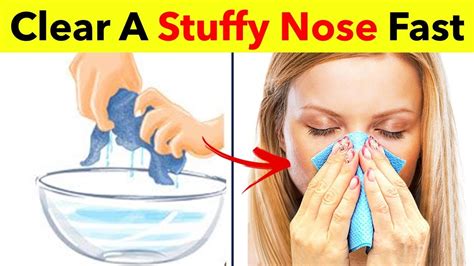How To Clear a Clogged Nose: Effective Home Remedies and When to See a Doctor
A clogged nose is incredibly frustrating, making it hard to breathe, sleep, and even taste food properly. Fortunately, there are many ways to clear a stuffy nose, ranging from simple home remedies to medical interventions. This guide will walk you through effective methods and when you should seek professional help.
Understanding Nasal Congestion
Before diving into solutions, it's helpful to understand why your nose is clogged. Congestion is often caused by:
- The Common Cold: Viral infections are a leading cause of nasal congestion, accompanied by other cold symptoms like coughing, sneezing, and sore throat.
- Allergies: Exposure to allergens like pollen, dust mites, or pet dander can trigger inflammation and mucus production, leading to a stuffy nose.
- Sinusitis: Inflammation of the sinuses can cause significant congestion and pain around the eyes and forehead.
- Nasal Polyps: These benign growths in the nasal passages can obstruct airflow and cause chronic congestion.
- Deviated Septum: A crooked nasal septum can partially block one nostril, leading to consistent congestion on one side.
- Dry Air: Low humidity can dry out nasal passages, leading to discomfort and congestion.
Home Remedies for Nasal Congestion
Many effective remedies can alleviate nasal congestion at home. Remember to consult your doctor if symptoms persist or worsen.
Saline Nasal Rinse:
This is arguably the most effective home remedy. A saline rinse washes away irritants and mucus, providing immediate relief. You can purchase pre-made saline sprays or create your own solution using distilled water and salt. Make sure to use distilled or sterile water to avoid introducing bacteria.
Steam Inhalation:
Inhaling steam can help loosen mucus and open up nasal passages. Simply fill a bowl with hot water, drape a towel over your head, and inhale the steam for 10-15 minutes. Adding a few drops of eucalyptus or peppermint essential oil can enhance the effect. Caution: Be careful not to burn yourself.
Hydration:
Drinking plenty of fluids, especially water, helps thin mucus and makes it easier to clear.
Humidifier:
A humidifier adds moisture to the air, preventing nasal passages from drying out and becoming congested.
Elevation:
Elevating your head with extra pillows while sleeping can help drain mucus and reduce congestion.
Over-the-Counter Medications:
Several over-the-counter medications can help relieve congestion:
- Decongestants: These medications, available as nasal sprays or oral pills, can temporarily shrink swollen blood vessels in the nasal passages. However, prolonged use of nasal decongestant sprays can lead to rebound congestion, making the problem worse.
- Antihistamines: If allergies are the cause of your congestion, antihistamines can help reduce inflammation and mucus production.
When to See a Doctor
While many cases of nasal congestion resolve on their own, it's crucial to seek medical attention if:
- Congestion lasts longer than 10 days.
- You experience severe pain or pressure in your sinuses.
- You have a high fever.
- You have green or yellow mucus.
- You experience difficulty breathing.
- You have other concerning symptoms.
By following these tips and understanding when to seek professional help, you can effectively manage your nasal congestion and breathe easier. Remember, consistency with home remedies and following doctor's advice is key to resolving the issue.
